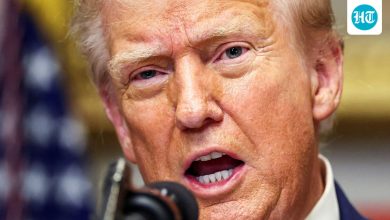Trump’s H-1B fee sparks panic, China announces K visa: Here’s what to know

Amid growing concern over the United States’ new $100,000 visa fee, China has announced a “K visa” to attract young science and technology professionals.
Amid US H-1B fee concerns, China announces K visa to attract young science and tech professionals.(REUTERS File)
The move is part of amendments to China’s entry and exit regulations, set to take effect on October 1, state-run news agency Xinhua reported.
Premier Li Qiang has signed a State Council decree formalising the amendments to China’s regulations governing the entry and exit of foreign nationals, the report added.
The announcement said that applicants for the visa must meet the qualifications and requirements set by the relevant Chinese authorities and provide the necessary supporting documents.
Features of K visa
The “K visa” offers several advantages over China’s 12 ordinary visa categories. It provides greater flexibility with multiple entries, longer validity, and extended stays.
Unlike most work visas, applicants do not need an invitation from a local employer. Holders can participate in a wide range of activities, including academic, scientific, technological, cultural, entrepreneurial, and business exchanges.
“Bar specific age, educational background, and work experience requirements, applications for K visas do not require a domestic employer or entity to issue an invitation, and the process will be more streamlined,” the Chinese Ministry of Justice said in a statement.
Beijing stressed that while China’s growth benefits from global talent, it also creates opportunities for them.
Trump’s $100,000 fee on H-1B visa
Starting September 21, all new H-1B visa petitions, including those for the FY2026 lottery, will require a USD 100,000 fee, following a proclamation issued by President Donald Trump.
Trump described the six-figure fee as part of his efforts to safeguard American jobs and national security, while also introducing a “Trump Gold Card” visa program, allowing individuals to obtain US residency for $1 million.
In an H-1B FAQ released Sunday, the US Citizenship and Immigration Services (USCIS) described the September 19 proclamation as an “important, initial, and incremental step” to reform the H-1B visa program, aimed at curbing abuses and protecting American workers.




